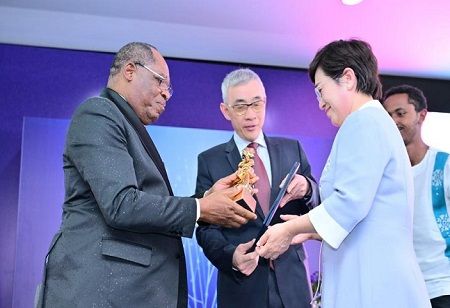UNESCO announced the winners of the 2024 UNESCO-Equatorial Guinea International Prize for Research in the Life Sciences, honoring scientists from China, Egypt, and Greece for their significant contributions to enhancing human life through scientific inquiry. The award ceremony took place in Addis Ababa, Ethiopia, during the 10th Africa Regional Forum on Sustainable Development.
Qiao Jie, Mohamed Ali Farag, and Triantafyllos Stylianopoulos were recognized for their exceptional achievements, celebrated for advancing scientific understanding and improving global well-being. UNESCO's deputy director-general, Qu Xing, commended the laureates for their profound impact on society, acknowledging their efforts in advancing scientific knowledge and promoting human welfare.
The prize, organized by Equatorial Guinea, acknowledges the remarkable accomplishments of distinguished researchers and emphasizes the importance of supporting scientific endeavors for the betterment of humanity. Monique Nsanzabaganwa, deputy chairperson of the African Union Commission, underscored the prize's role in fostering scientific excellence and fostering collaboration among scientists across Africa.
Nsanzabaganwa praised the laureates for their dedication to advancing knowledge and addressing critical health, agricultural, and environmental challenges worldwide, describing their achievements as inspirational and exemplary.
Qiao's expertise in reproductive medicine earned her recognition for her groundbreaking work in improving reproductive health outcomes, particularly for women. Her research on preimplantation genetic diagnosis and microbiomes has significantly enhanced the success rates of in vitro fertilization and contributed to the prevention of genetic diseases.
Farag's pioneering contributions to metabolomics have revolutionized scientific understanding in Africa. His development of a metabolomic platform has enabled the observation and utilization of volatile compounds emitted by microbes for medical and agricultural purposes, notably aiding in the discovery of biocontrol agents that promote plant growth.

